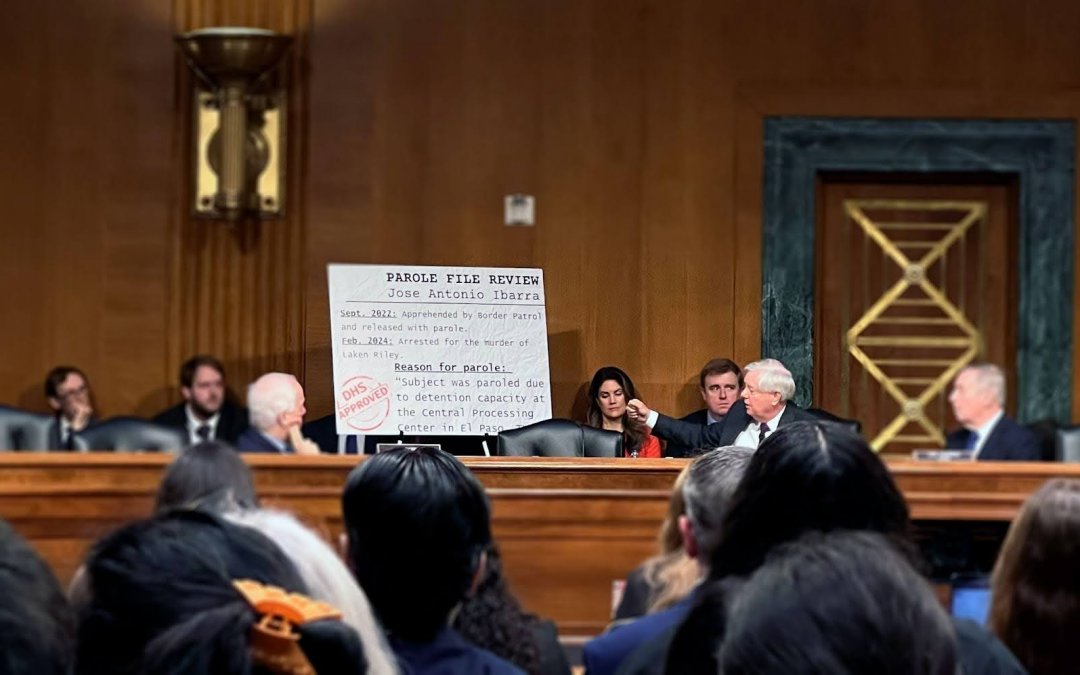WASHINGTON — Lawmakers were divided Wednesday over the need for legal protections for Dreamers — noncitizens who were brought to the United States as children — with Republican senators asserting that their legalization cannot be discussed until what they called the Biden immigration crisis is solved.
According to ranking member of the Senate Judiciary Committee, Sen. Lindsey Graham, R-S.C., support of undocumented Americans is not his main priority at the moment. Graham, together with Committee Chair Dick Durbin, D-Ill., introduced the latest version of the DREAM Act in 2023.
“Since we started this discussion, the last three years have been a complete and utter disaster for American immigration policy,” Graham said. “I don’t ever see anything on the DREAM Act coming anytime soon until we stop the abuse of parole and some underlying problems.”
Republicans say they are convinced that the legalization of noncitizens would exacerbate and encourage illegal immigration.
“If we did start legalizing people now, I think you are sending a signal to keep coming,” Graham said. “Is there any end to this, where people brought by their parents wind up staying and becoming citizens?”
Sen. Marsha Blackburn, R-Tenn., further questioned the legalization of noncitizens, citing the recently granted access to affordable healthcare for Deferred Action for Childhood Arrivals, or DACA, recipients.
According to Jessica Vaughan, director of Policy Studies at the Center for Immigration Studies, it would serve as a message that incentivizes illegal crossing into the country.
However, Durbin defended DACA, saying it applies only to individuals who entered the U.S. before age 16 and have continuously resided in the country since 2007.
He emphasized that the DREAM Act, which applies to those who entered the United States as minors and have been continuously physically present in the country for four years, does not imply any benefits other than legal status for noncitizens.
“Let’s not have these people responsible for all the immigration issues,” he said.
Moreover, providing a pathway to citizenship for Dreamers would significantly improve the American economy, said Tom Wong, director of the U.S. Immigration Policy Center at the University of California-San Diego.
He emphasized that undocumented young people already contribute to the labor market, but the higher employment and higher wages tied to their legalization would add $2.5 billion per year in additional state and local tax revenue — by conservative estimates.
Sen. Mazie Hirono, D-Hawaii, agreed that the DACA recipients benefit the United States, noting that every industry in the country, including police departments, requires workers.
“It makes little sense that we are not going to enact legislation that is going to enable the DACA recipients to stay in our country,” Hirono said.
Mitchell Soto-Rodriguez, a police officer in the Blue Island (Ill.) Police Department, and a DACA recipient, urged the Senate to take action.
She said she worked two jobs to pay for her education and became a police officer after Blue Island Police Chief Geoffery Farr advocated for the city to change its rules so DACA recipients could apply to be police officers. If DACA were to be removed, she would lose her job and her home, Soto-Rodriguez said.
Maria Gabriela Pacheco, the president and chief executive officer of TheDream.US, the largest college and career success program for undocumented immigrant youth, and a recently naturalized U.S. citizen, echoed the urgency for action.
“We cannot wait. We have had this issue for 20-something years. We need to do something now,” she said.
Durbin agreed, emphasizing that DACA recipients are under the threat of the ongoing legislation brought by Republican attorneys general.
“Even if the courts find, as they should, that DACA is lawful, the future administration can try to end the program,” he said. “We saw this when the former president attempted to eliminate DACA, and clearly he will try again if he is given a chance.”


